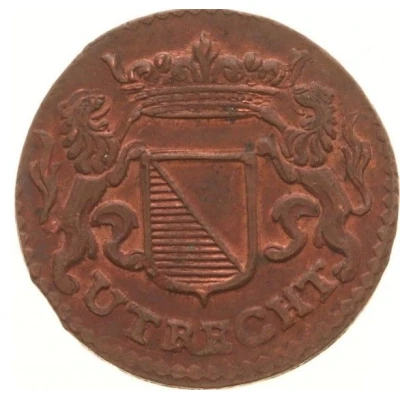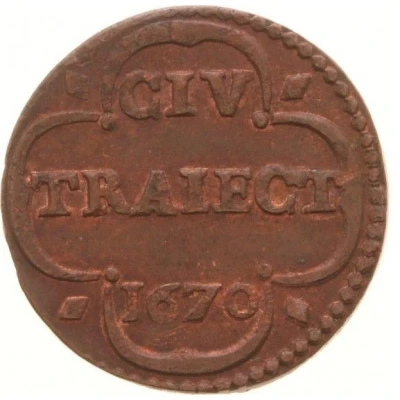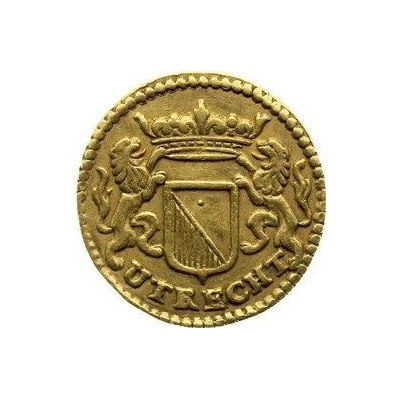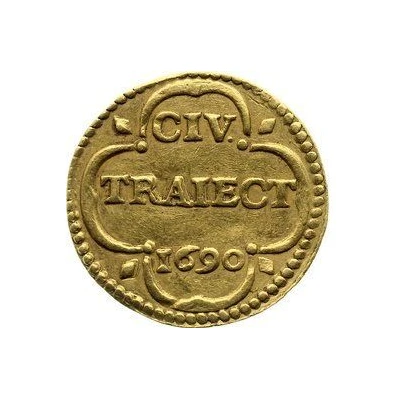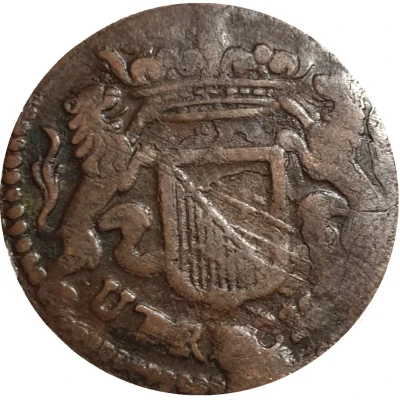
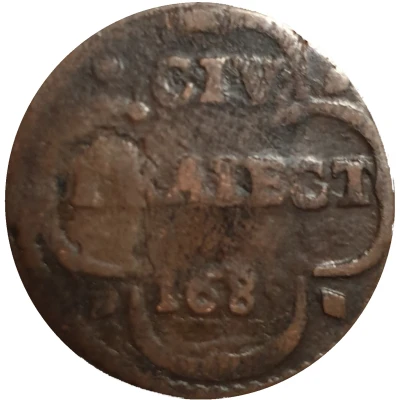

© Jacques BLARD (CC BY-NC-SA)
1 Duit
| Copper | 2.2 g | 21.5 mm |
| Issuer | City of Utrecht (Dutch Republic) |
|---|---|
| Type | Standard circulation coin |
| Years | 1681-1689 |
| Value | 1 Duit (1⁄160) |
| Currency | Gulden (1581-1795) |
| Composition | Copper |
| Weight | 2.2 g |
| Diameter | 21.5 mm |
| Shape | Round |
| Demonetized | 1 October 1822 |
| Updated | 2024-10-06 |
| Numista | N#134486 |
|---|---|
| Rarity index | 85% |
Reverse
City name in two lines, date, within quatrefoil.
Script: Latin
Lettering:
CIV
TRAIECT
1689
Unabridged legend:
Civitas
Traiectum
Translation: City of Utrecht
Comment
There are different varieties that look almost the same. The difference is the decoration in the coat of arms on the obverse side. There can be horizontal and vertical stripes, points and fire-like decoration.Interesting fact
The 1 Duit coin from the City of Utrecht (Dutch Republic) was made of copper, which was a common material for coins at that time. However, what's interesting is that the coin was designed with a unique feature - it has a hole in the center, which was used as a way to test its authenticity. This feature was known as a "plug" or "stopper," and it was used to ensure that the coin was not counterfeit. The idea was that if the coin had a hole in the center, it would be difficult to counterfeit, as it would require special tools and techniques to create the hole. This feature was used on many coins during that time period, and it's still a distinctive feature of many ancient coins that collectors look for today.
